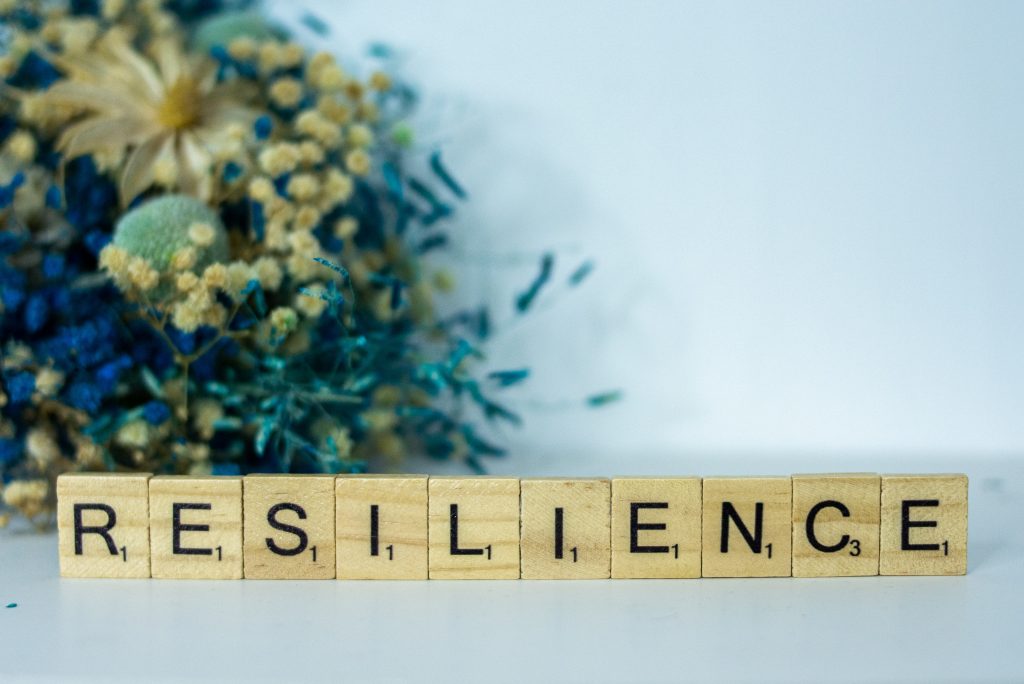Life can be unpredictable, challenging and often, downright difficult. But having resilience and mental toughness can help individuals navigate tough times and come out stronger on the other side. Resilience is the ability to adapt and bounce back from adversity, while mental toughness is the ability to stay focused, motivated and committed to your goals despite challenges. Building resilience and mental toughness can be achieved through a variety of strategies, including developing a growth mindset, seeking social support, practicing mindfulness, and building physical strength.

One of the key components of building resilience and mental toughness is developing a growth mindset. This means adopting a perspective that views challenges and failures as opportunities for growth and learning, rather than insurmountable obstacles. People with a growth mindset embrace challenges and see setbacks as opportunities to learn and improve. By focusing on learning and growth, individuals can shift their perspective from one of helplessness to one of empowerment. They can then work through difficult situations with a sense of determination and optimism.
Another important strategy for building resilience and mental toughness is seeking social support. Having a supportive network of friends and family members can provide a source of comfort and encouragement during difficult times. Social support can also provide an opportunity for individuals to gain new perspectives on their situation and to receive practical help when needed. Building strong relationships with others can also help people develop a sense of belonging, which can contribute to feelings of well-being and resilience.
Mindfulness is another effective strategy for building resilience and mental toughness. Mindfulness involves being present in the moment, paying attention to one’s thoughts and emotions without judgment. By practicing mindfulness, individuals can learn to tolerate difficult emotions and to approach challenges with a sense of calm and perspective. Mindfulness can also help individuals develop greater self-awareness, which can contribute to better decision-making and problem-solving skills.
Physical strength is another important component of building resilience and mental toughness. Physical activity, such as strength training, can help individuals build endurance, develop greater self-discipline and improve their ability to tolerate discomfort. Physical strength can also contribute to a sense of self-efficacy and confidence, which can help individuals face challenges with greater resilience and determination.
In addition to these strategies, there are several other habits and practices that can help individuals build resilience and mental toughness. One such habit is setting realistic goals and taking action towards achieving them. By setting achievable goals and taking consistent steps towards achieving them, individuals can build a sense of accomplishment and progress. This can contribute to feelings of confidence and self-efficacy, which can in turn help individuals navigate difficult times with greater resilience.
Self-care involves taking care of one’s physical, emotional, and spiritual needs.
Another habit that can contribute to resilience and mental toughness is practicing self-care. Self-care involves taking care of one’s physical, emotional, and spiritual needs. This can include things like getting enough sleep, eating a healthy diet, engaging in regular exercise, and taking time for relaxation and leisure activities. By prioritizing self-care, individuals can build greater resilience and energy, which can help them face challenges with greater determination and focus.
Moreover, it’s important for individuals to develop a sense of purpose and meaning in their lives. This can involve finding work that aligns with one’s values and passions, engaging in volunteer work or community service, or pursuing creative hobbies or interests. By developing a sense of purpose and meaning, individuals can build a sense of resilience and mental toughness, as they feel that they are working towards something greater than themselves.
Ultimately, developing these qualities can help individuals not only navigate difficult times but also grow and thrive in the face of adversity. By adopting these strategies and habits, individuals can cultivate a sense of strength and resilience that can help them not only overcome challenges, but also achieve their goals and live more fulfilling lives.
It’s important to note that building resilience and mental toughness is a process that takes time and effort. It’s not something that happens overnight or without intention. It requires a willingness to face challenges, to learn from setbacks, and to take action towards personal growth and development. It also requires a commitment to self-care and self-compassion, as individuals navigate difficult emotions and experiences.
If you’re looking to build resilience and mental toughness, it can be helpful to start by reflecting on your own values, strengths, and areas for growth. Consider seeking out resources and support, such as books, workshops, or therapy, to help you develop the skills and habits you need to cultivate greater resilience and mental toughness. You can also look for opportunities to practice these skills in your daily life, whether it’s by taking on a new challenge, reaching out to a friend for support, or practicing mindfulness or physical activity.
In the end, building resilience and mental toughness is about developing the ability to adapt and thrive in the face of adversity. It’s about cultivating a sense of strength and resilience that allows you to stay focused and motivated, even when the going gets tough. By adopting these strategies and habits, you can build the resilience and mental toughness you need to face life’s challenges with greater confidence and determination, and to achieve your goals and live a more fulfilling life.




